
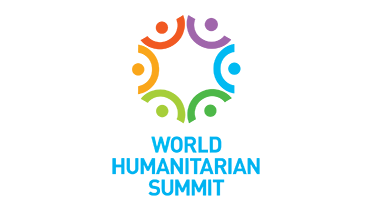
Perspectives from Cities in Crisis: launch of IMPACT and UCLG study at the World Humanitarian Summit
By 2050 over 70% of the global population will live in urban areas.
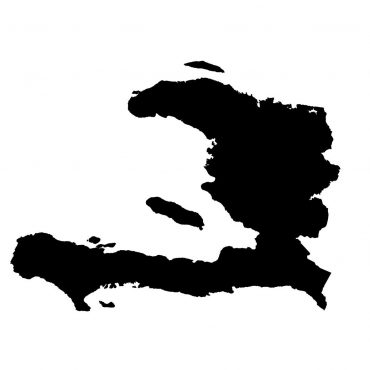
IMPACT returned to Haiti through its REACH initiative in 2020 in order to inform responses being developed to mitigate the effects of the tropical storm Laura (August 2020), the COVID-19 pandemic, and increased violence triggered by socio-political events particularly in the Metropolitan Area of Port-au-Prince. Since REACH returned to Haiti, they have been able to inform the response for the 2021 earthquake through the Joint Market Monitoring Initiative and participative area-based assessments.
The regular occurrence of natural disasters in Haiti as well as the continuously worsening situation of violence and political instability leaves the vast majority of the Haitian population in a vulnerable state. In using our specific technical abilities, REACH has been working with humanitarian coordination structures and sectoral groups as well as governmental actors and local representatives of communities in order to provide reliable and relevant information to humanitarian actors and decision-makers.
Most recently REACH is concentrating on ensuring pertinent and comparable data to inform the HNO/HRP cycle of 2022/2023 through conducting our flagship Multi-Sectoral Needs Assessment (MSNA) across the entire country with a particular focus on the Metropolitan Area of Port-au-Prince. In addition to this, REACH is introducing area-based approaches to response planning in close collaboration with communities and local actors in order to support locally adapted and participative approaches to aid and early recovery. Finally, REACH is focusing on using their GIS (Geographic information systems) capacities as well as a coordination approach in order to raise awareness and capacities to deal with natural disasters and shocks.


By 2050 over 70% of the global population will live in urban areas.

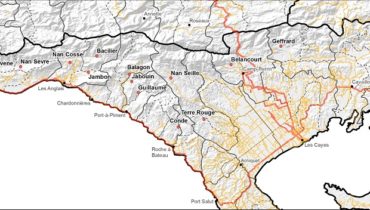
Hurricane Matthew has provoked the most serious humanitarian crisis in Haiti since the 2010 earthquake, affecting more than 2.1 million people, almost 800,000 of whom in the Departments of Sud and Grand Anse. It devastated an already highly vulnerable region in Haiti, causing significant humanitarian and reconstruction challenges. While various humanitarian actors have immediately mobilized […]

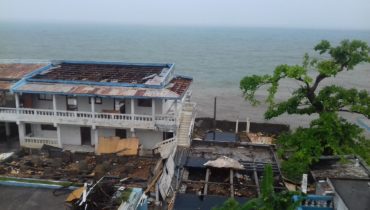
On October 3, 2016, Haiti’s southern tip was struck by Hurricane Matthew, the most violent hurricane in the past 10 years. So far, as a direct result of the hurricane, 2.1 million people, including almost 900,000 children, are affected, and 1.4 million people are in need of humanitarian assistance. The entire population of the Grand […]

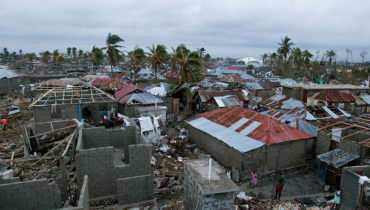
Hurricane Matthew left a trail of devastation behind as it forced its way through Haiti on October 4. Most affected areas are left with houses in rubble, smashed concrete walls and torn off roofs, most likely to result in a high number of fatalities. More worryingly, the La Digue Bridge linking the southern peninsula of […]

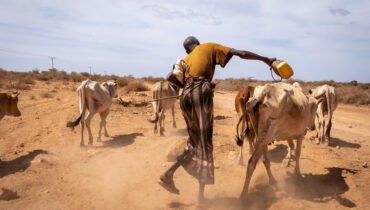
Ethiopia continues to face humanitarian crisis compounded by cycles of droughts, floods, and conflict. The humanitarian community has struggled to secure funding for its response. As the 2024 rainy season approaches, concerns mount over the possibility of yet another failed harvest and erratic rainfall patterns due to El Niño. And spreading the drought to key […]

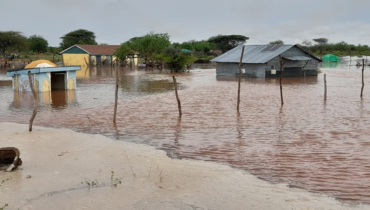
Climate shocks in Kenya continue to be felt through more than a decade of drought and, from October 2023 to January 2024, the country also saw El Niño related flooding. This led to the deaths of at least 174 people and the displacement of more than 500,000 households. More than 17,000 acres of farmland were […]


IMPACT Initiatives has signed the Climate and Environment Charter for Humanitarian Organisations at a time when our planet is in a period of accelerating climate and environmental crises, the effects of which are being felt by all of us. As humanitarian organisations, we see this crisis reflected every day in our work. Climate-related disasters have nearly doubled in […]

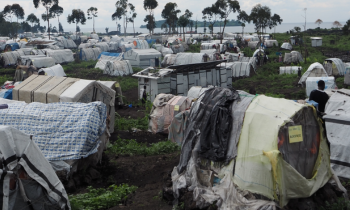
La crise prolongée que subit l’Est de la République Démocratique du Congo (RDC) depuis plusieurs décennies, connaît depuis bientôt deux ans une évolution préoccupante. Le conflit en cours depuis le printemps 2022 entre les forces gouvernementales congolaises et leurs alliés d’une part, et le groupe armé M23 d’autre part, s’est intensifié depuis la fin du […]
No publications found.